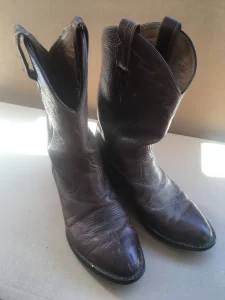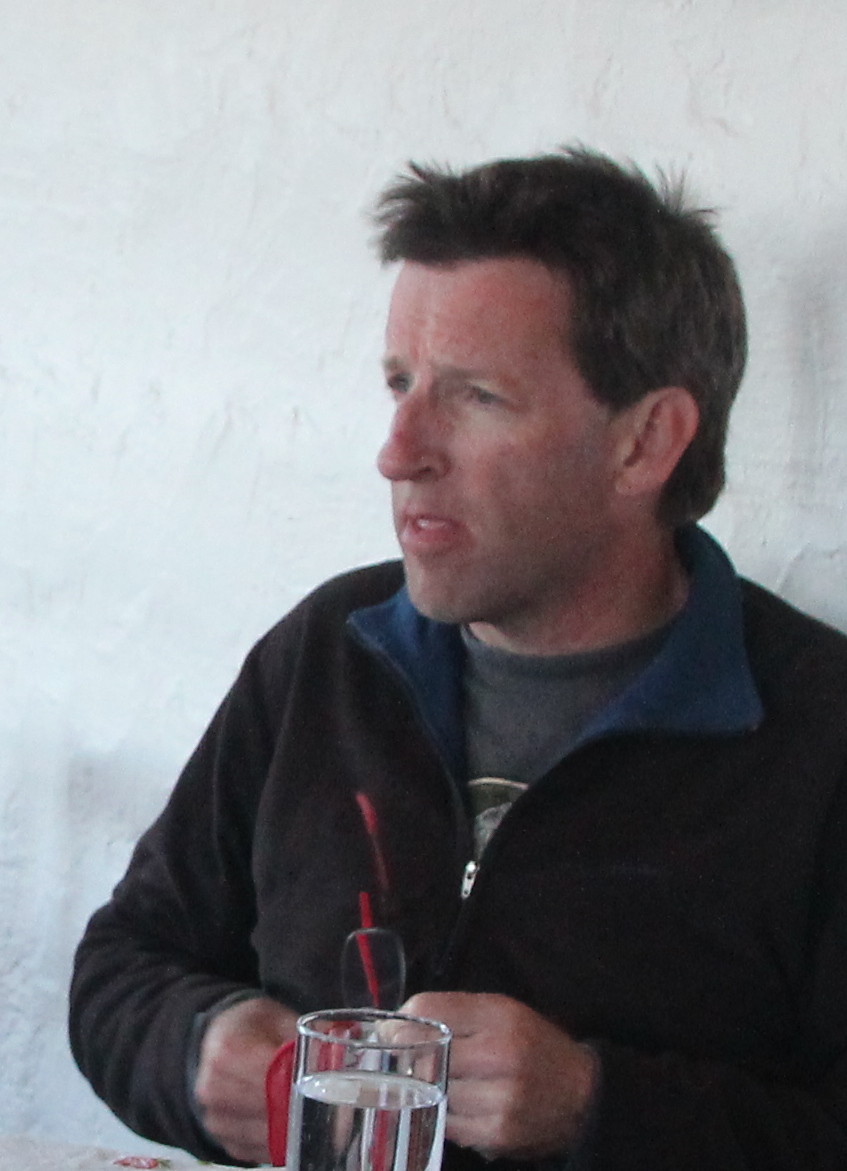emporium n. Pl. -iums, -ia. [L f. Gk emporion, f. emporos merchant, per- to journey.] 1 A centre of commerce; a market. 2 A shop, esp. one that sells unusual or fancy goods. Chiefly joc.
 Of all the impacts of the COVID pandemic, one of the most enduring is—in my eyes—an increased awareness of the churning of stuff in the world or the way material goods do or do not move around in response to human needs and desires. Toilet paper shortages, a dearth of computer chips, ships anchored off Long Beach because they couldn’t be unloaded—the ripples moved through our economy and through our awareness with their own viral intensity, contributing the phrase “supply-chain issues” to our ongoing list of anxieties.
Of all the impacts of the COVID pandemic, one of the most enduring is—in my eyes—an increased awareness of the churning of stuff in the world or the way material goods do or do not move around in response to human needs and desires. Toilet paper shortages, a dearth of computer chips, ships anchored off Long Beach because they couldn’t be unloaded—the ripples moved through our economy and through our awareness with their own viral intensity, contributing the phrase “supply-chain issues” to our ongoing list of anxieties.
I was thinking of the way stuff moves around last weekend when I took a short trip to southern Arizona to meet a couple of old friends and to conduct a quick family shopping errand to one of the big-box stores that we don’t have in Flagstaff. Consider it a tale of two stores, two emporiums.
Emporium 1: The old main street of Globe, Arizona: a once thriving and still surviving mining town whose downtown is lined with sturdy old brick and stone buildings that housed eateries and general stores, saloons and brothels. We heard about the 29 cramped working girls’ rooms above one of the bars as well as lingering stories of long-past murders. The street now houses a few good Mexican-American restaurants and a brand new wood-fired pizza joint.
But, the most mysterious and gratifying places were the storefronts that had no names, no hours of operation posted. The most tantalizing had in its main window a 10-foot-long model of a black military ship and a handwritten placard indicating that it had been used in the making of a 1958 submarine flick. Behind it loomed a five-foot-tall head of a smiling Richard Nixon that looked like it had been sculpted out of gold Styrofoam. Strewn in between were giant old wrenches and bolts and mysterious military-surplus machineries of obscure purpose. The place felt hallucinatory. How had all this stuff washed up in Globe, Arizona?
A couple of blocks farther down the street was an equally dusty and dimly lit store, but this time with its door open. We wandered in. “Come on in,” said a voice. It belonged to a tall, rangy man whose tousled hair lay on the color palette somewhere between blond and gray.
“I just got back from an estate sale in Miami,” he said. “Hardly anyone showed up. That’s just the way it goes. People in Globe think Miami is too far away—it’s only six miles!”
Whether the lack of audience was due to distance or disinterest, I couldn’t say. But the prospects inside didn’t look particularly promising. We shuffled in, sidling between a beat-up iron chandelier and a cherry-colored hardwood vanity that held a faded mirror. Up against the front window metal shelving units held a hodgepodge of bric-a-brac: dusty cameras, chipped ceramics and a lineup of worn cowboy boots. My friend gravitated toward the cameras, I toward the boots.
The owner told us he’d had the place for years. “The junk business is great,” he said, “until it isn’t.” He started telling us about deals he’d made, how visitors to town would trade him some antique they found almost worthless for an object he’d been trying to get rid of for years. I had a sense of this man as the real-life version of a “Star Wars” trader, condemned to some arid third-rate planet where he eked a living hacking apart space scrap.
It was a sense that only grew stronger the next day when I visited Emporium 2: the big-box store, the Scandinavian one that I’d only been in once before. That time I grew dismayed when I experienced how I had to wind my way through endless display rooms full of bedroom sets, sofas, desks and every imaginable flavor of kitchen furnishing before I could even work out how to get to the cashiers. This time was easier because my wife had already texted me the precise product number representing the desk I was to buy.
“Where do I find this?” I asked a helpful clerk at the front. She typed the number into her phone, then displayed the coordinates for me to see. “Just take a picture of my screen,” she directed me.
That was good advice, for when I looked up, I saw that the aisles of shelving and cardboard boxes seemed to stretch on indefinitely from behind the cashier stations like the bland federal archive that the Ark of the Covenant is wheeled into at the end of the first Indiana Jones movie. I needed those exact numbers that eventually, like loyal GPS coordinates, navigated me to the precise aisle and bin that held the object of our desire. I felt I had fallen into one of the nation’s many centers of global commerce, the endpoint of a process in which wood and steel and plastic from God only knows how many locales and countries are glued and screwed and laminated together, packed into cardboard and then shipped off in the multimodal containers that traverse the Flagstaff cityscape on their BNSF cars, 24/7/365. It was efficient; it was horrible. If the junk shop was Tatooine, the big box was Coruscant, an overdeveloped economic hub whose clockwork processes and quick wish fulfillment masked all the shortcuts that lay beneath.
I got out of there as soon as I could with my two modular desk halves secured in their cardboard sheaths, not even glancing at the exit-aisle shelves full of preserved lingonberries and thin-baked pepparkakor. I slid them into the back of the car and drove home without stopping but not without an occasional glance back into the rearview mirror, which gave me a view just low enough that I was able to see my other purchase proudly standing atop the cardboard.
I hadn’t left the Globe junk shop empty-handed. For the cost of a couple of Starbucks coffees I had bought a fine, used pair of cowboy boots, pre-worked by some stranger’s feet. The leather felt supple, the soles looked almost new. For someone who hates shopping I felt oddly gratified. For a little while, at least, I’d scrap-picked value out of the rim of the economy. The desk would be helpful. But the boots would mean more.

